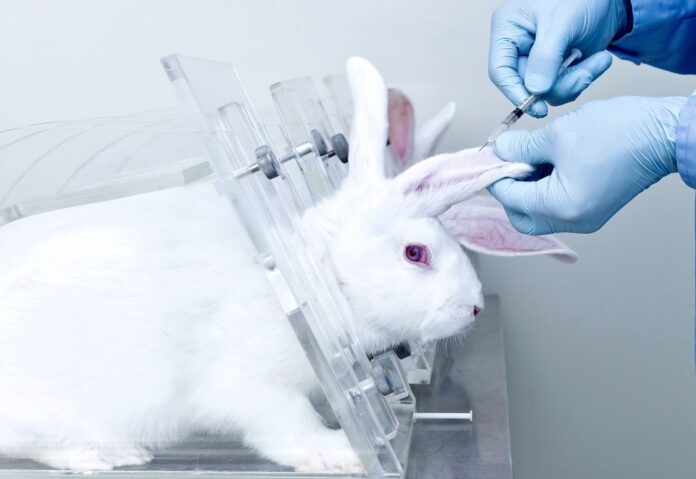
The Colombian Senate Votes To Ban Animal Testing For Cosmetics; Bill Now Moves To President’s Desk For Signature
By Lauren Lewis
You can help all animals and our planet by choosing compassion on your plate and in your glass. #GoVeg
RELATED ARTICLES
Banning Cruelty: New Legislation Aims To Ban Octopus Farming In The U.S.
New bipartisan legislation has just been introduced in the U.S. to ban commercial octopus farming and prohibit imports of farmed octopus from foreign countries.
The...
Outrage In Yellowstone! Grizzly Bear Killed By Wildlife Officials & Left With Head & Paws Cut Off
Photo by: Trisha McFarland / Cowboy State Daily
A photo of a dead grizzly bear with its head and paws cut off has caused an...
Inside Florida’s Illegal Horse Meat Trade: Undercover Footage Shows Racehorse Being Shot & Butchered
A heart-wrenching discovery of illegal horse slaughter has emerged, with video footage exposing the tragic killing of a racehorse named 'Funny Biz,' who was...
Popular stories
News
Dallas Bans The Sale Of Dogs & Cats In Retail Pet Stores Beginning In November 2022
Last month, the Dallas City Council unanimously voted to pass the Dallas Humane Pet Store Ordinance which will take effect on November 11th of this year.
“Since...
News
World Animal News TOP Stories Making Headlines!
1. Notorious Trophy Hunter, Riaan Naude, Was Reportedly Shot & Killed In South Africa
Riaan Naude, a trophy hunter in South Africa known for “proudly” displaying images...
News
Five Suspects Arrested For The Shooting Of Lady Gaga’s Dog Walker & Theft Of Her Two French Bulldogs
A little more than two months after the shockingly violent shooting of Ryan Fischer, Lady Gaga’s dog walker, and the dognapping and subsequent return...


